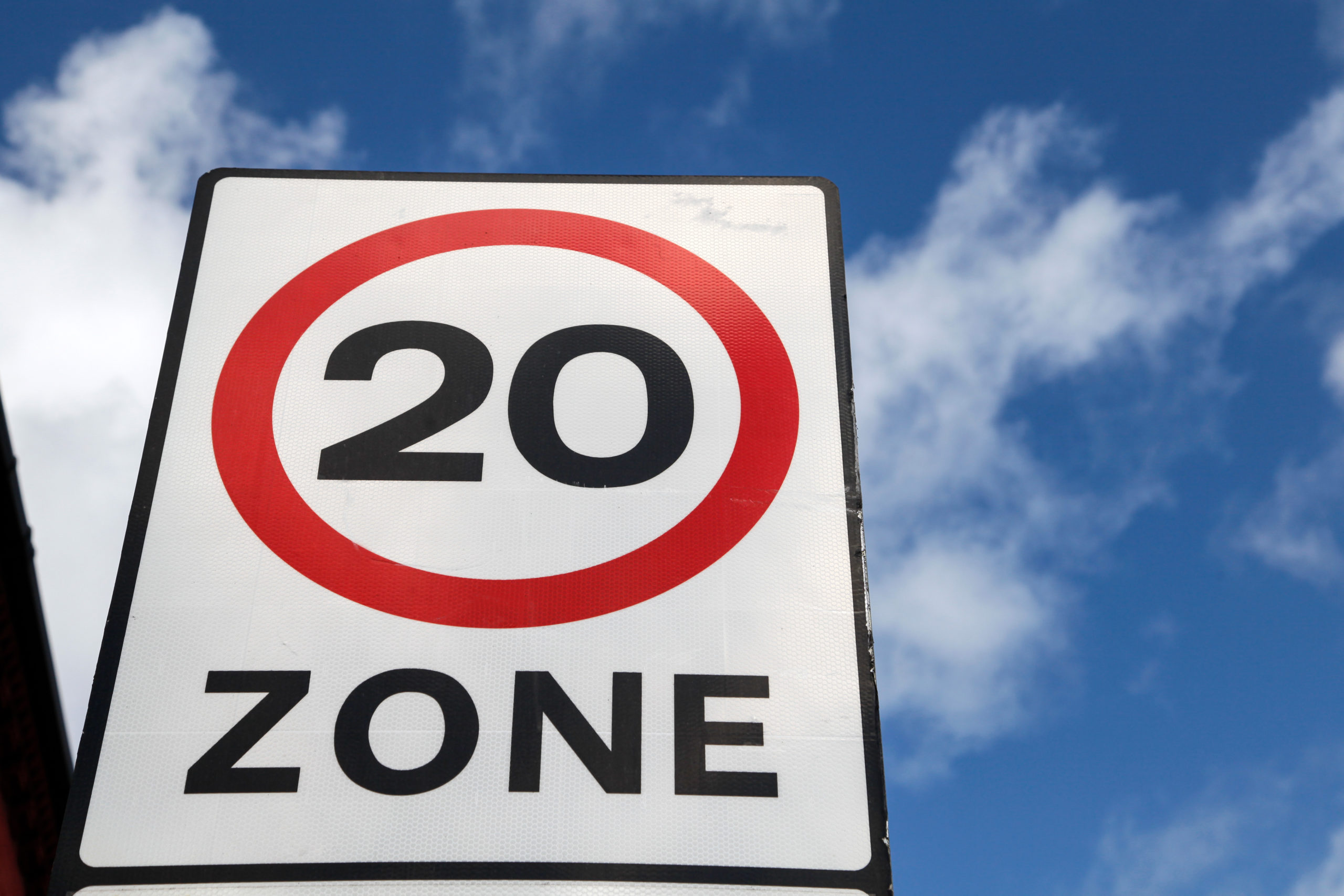
13 December 2023
New 20 mph Speed Limits – How Does it Affect Drivers?
On 17 September 2023, Wales introduced a the new 20 mph speed limits in most residential areas. They are already common in Scotland - the Highlands were the the first to reduce speeds to 20 across the whole region, and most roads in Edinburgh are now 20-mph. By the end of the year, 20-mph zones are going to be in place in the following areas of London:
- Greenwich
- Kensington and Chelsea
- Lewisham
- Southwark
- Wandsworth
- Merton
- Bromley
- Lambeth
Reasons for Change
Road safety has long been a top priority for communities and policymakers alike. The decision to lower speed limits reflects a growing awareness of the risks associated with higher speeds in densely populated areas, with the 20mph limit aiming to reduce the severity and frequency of accidents, making roads safer for all users. Lowering the speed limit to 20mph significantly reduces the chances of fatal accidents. The slower speeds provide drivers with more time to react to unexpected situations and decrease the severity of collisions, ultimately saving lives. The new speed limits also promote a more inclusive and accessible urban landscape. Pedestrians and cyclists can navigate roads with increased confidence, fostering a sense of community and encouraging healthier and more sustainable modes of transportation such as walking, cycling and public transport. Improved air quality is another factor behind the change. Slower speeds contribute to reduced emissions, thus healthier living spaces. The Welsh Government echoes the above, by saying that the new limits will result in:- 40% fewer collisions
- 6 to 10 people’s lives saved
- 1200 to 2000 people avoiding injury
- Make streets safer for children who are playing
- Improve safety within communities
- improve health and wellbeing
How drivers are adjusting
While the new speed limits represent a positive step toward safer roads, drivers may need time to adjust to the changes. It's essential for motorists to be aware of the updated limits and embrace a more mindful and patient approach to driving in urban areas. In Wales, the new speed limits have been met with a variety of reactions, including some resistance, but a survey in the country revealed 63% of people supported the 20-mph limits where they live. A survey by Confused.com suggests drivers feel the limits are a good move around schools and in residential areas but are perhaps redundant on wider roads where they feel the traffic should flow faster. There are also reported concerns about tailgating from frustrated drivers driving too close - particularly dangerous for motorcyclists, it was mentioned - and some issues with the clarity, frequency and placement of the new road signs. Further considerations are on congestion levels – some drivers surveyed said they hadn’t noticed a significant improvement in these. And on speeding fines.Are the New 20-mph Speed Limit Zones Enforceable?
If you’re caught speeding in a 20-mph zone you could get fined £100 and awarded 3 penalty points. But the police are giving drivers 12 months' grace, depending on how far over the speed limit they are travelling, to get used to the changes. South Wales Police Assistant Chief Constable Mark Travis, says: “Where we find people driving above 20mph, we stop drivers and speak to them about the dangers and risks of driving above the speed limit. We won't be taking enforcement action against those people who are actually engaging with us and trying to bring their speed down - so they won't receive a fine. The people who will be fined will be those driving at the highest levels. Ultimately, if necessary, we will enforce - but that is always a last resort for us.” This won’t apply to areas where there is a speed camera. If a speed camera catches you in a 20-mph zone, you could be sent on a speed awareness course. If you’re considerably over the speed limit, you could face court.Lower Premiums for Motor Insurance Due to the New 20 mph Speed Limits?
Finally, will lower speeds result in more money in drivers’ pockets when it comes to their insurance premiums? This is a distinct possibility, says Louise Thomas, a motor insurance expert at Confused.com: “The government has implemented the 20 mph changes in both London, Scotland and Wales. Opinions divide on the 20mph zones, as some drivers feel frustrated with the changes. But a slower speed limit can benefit the environment and be safer for road users. This can be especially important for built up areas, such as congestion zones or near schools and hospitals. The speed reduction could also have a positive impact on car insurance prices. A lower speed limit could mean less accidents, which means less claims. So eventually, the 20 mph zones could help reduce premium prices overall.” Time will tell how successful the new 20-mph speed limits are in reducing accidents on the road. Contributing to safter communities and even lowering motorists’ insurance premiums, but their introduction in the UK certainly marks a significant shift towards safer, more sustainable and community-oriented urban spaces. By prioritising safety and considering the well-being of all road users, this initiative sets a promising precedent for other regions to follow. As drivers, pedestrians, and cyclists come together to navigate these changes, the potential benefits for society as a whole could be vast. Contributing to a brighter and safer future on the roads.Other blogs that may be of interest:
The Personal Motor Insurance Market – Challenging Times (ascendbroking.co.uk) How Your Business Can Reduce Their Motoring Costs (ascendbroking.co.uk) Self-Insurance Motor Fleet: A Cost-Effective Solution for Fleet Operators – selfinsuranceprotect.co.ukNeed motor insurance advice? Give Ascend a call today on 01245 449060 or email info@ascendbroking.co.uk.
Recent Posts
Ascend Broking
How AI is Revolutionising Fleet Safety
Ascend Broking
The Risks of Leaving Tools in Vehicles Overnight
Ascend Broking





